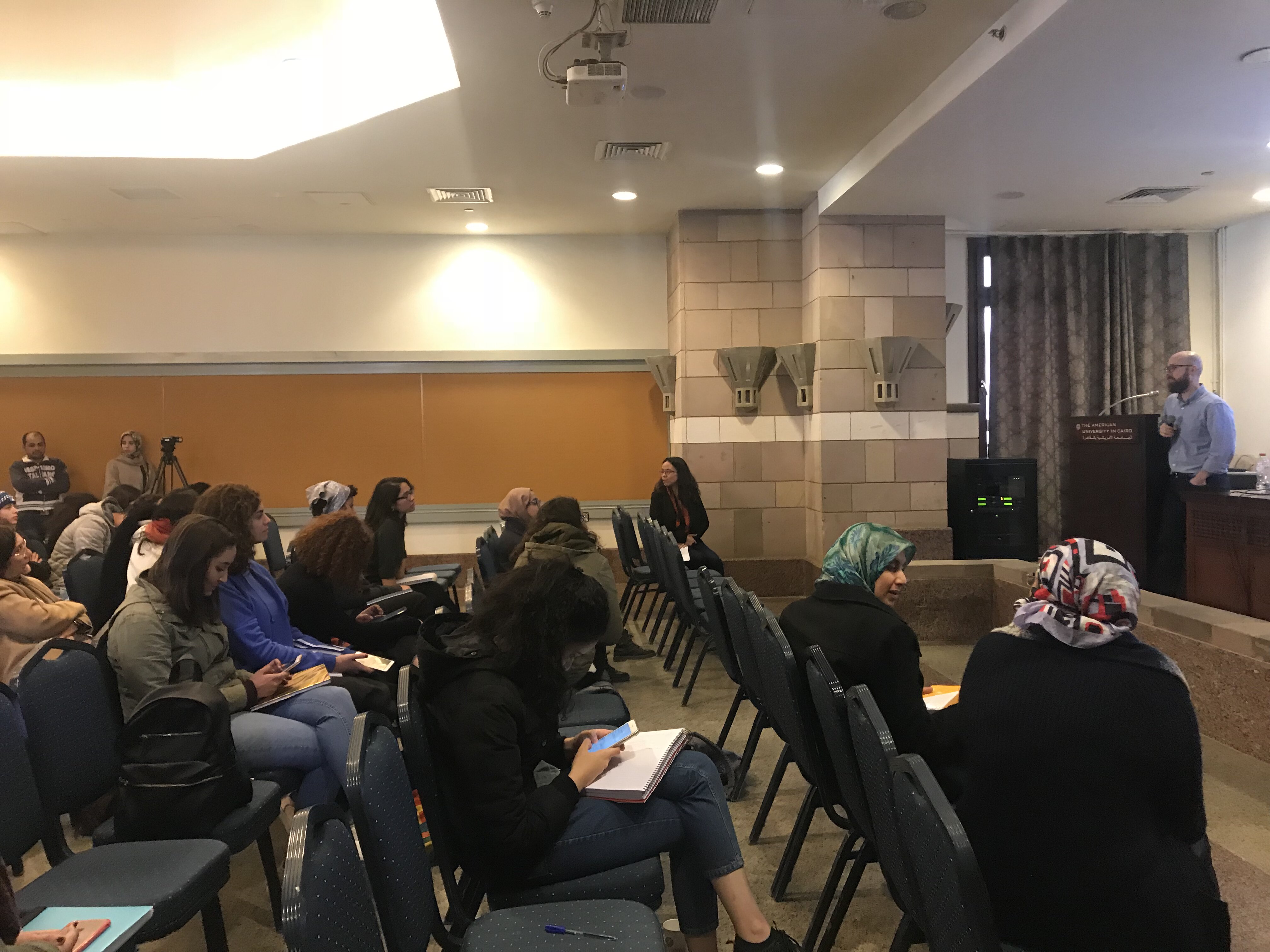By : Aya Aboshady
@Aya_Abuchadiee
For the Qahwa and Kalam Special Valentine’s Day Lecture, the topic of love was much more than about red roses and chocolates this year.
Organized by the Department of Arabic and Islamic Civilisation (ARIC), Professor Pascal Held’s lecture “Reflections of Love in Hafez’s Poetry” focused on themes of divine love and sincerity.
Shamsuddin Mohammed Hafez, a 14th Century Persian poet who lived all his life in Shiraz, Iran is revered worldwide for his Sufi mystic poetry which influenced many Western poets in later decades.
While Sufism is defined as the mystical Islamic traditions and beliefs in love and the divine, his verses came to be renowned for their critique of religious hypocrisy as well as, more generally, social criticism..
“Hafez is often seen as the peak of lyric poetry in Persian literature and today, he is the most beloved poet in modern Iran,” said Held.
He went on to explain that Hafez’s poetry is studied in many places around the world, but most people fail to connect the themes of his poetry.
Some believe that the verses of his poems are only tied together by rhythm rather than thematically, which is why there are many different interpretations of his work.
“When we analyze Hafez’s poetry, there is very little distinction we can make between the love for God and human beings,” Held explained.
“The Parrot of my heart is constantly madly enamored and lovesick like a nightingale in a cage,” read Held out loud to the audience explaining that the beloved here is meant to be God.
Held also explained that he chose Hafez’s poetry for this lecture because of the Persian poet’s interesting viewpoint on love, which reflected his perceptions of the material and nonmaterial (spiritual) world as one.
Some people argue that Hafez sees love as something beyond religion in a way that unifies different religious traditions and mystical ideas. In that sense, Hafez sees love as something as divine as religion.
Held believes that Hafez saw love manifested everywhere. Human beings themselves can be seen as a visible manifestations of the divine – a bridge to divine beauty – and adoring this manifestation means the adoration of God himself.
“Hafez’s poetry often takes on a human form when he talks about the divine beloved which is related to a concept called Shahid-Bazi,” said Held.
Shahid-Bazi was a common practice at the time among mystically inclined Sufi Muslims, where they gazed at the form of young males in contemplation of divine beauty.
Associate Professor of Arab and Islamic Civilizations Amina El Bendary says the lecture on Hafez is a good opportunity to showcase the literary aspect of Middle Eastern heritage to the campus community at large.
“Sufism is also another type of love that is very much connected to our Islamic studies,” El Bendary said.
She added that the lecture was designed for an audience which is not specialized in Islamic studies. The Qahwa and Kalam Series mainly targets the general community, specifically undergraduate students, in order to widen their knowledge on interesting ARIC topics they may be unaware of.
El Bendary voiced her hopes that such lectures would move students to think of love in broader terms, especially in the Islamic traditions.
This resonated with Film junior Helena Abdel Nasser, who was moved by how love intersects the human and the divine.
“I really liked the part of not being able to differentiate between the love for God and human beings in Hafez’s poetry. Mainly because I believe that you can see others’ love [towards] people through their love to God,” Abdel Nasser said.
